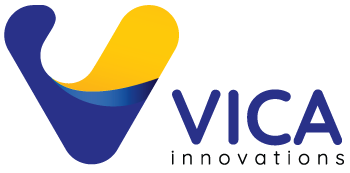Expanding a business internationally is an exciting and ambitious endeavor that can lead to significant growth opportunities. However, it comes with its own set of complexities, one of which is the need to switch financial reporting frameworks. This transition is not merely a change in accounting practices but a multifaceted challenge that demands meticulous planning, accurate transformation, and substantial time and financial resources.
In this blog, we will explore the intricacies of switching financial reporting frameworks during international expansion, highlighting potential pitfalls, the importance of precision in transformation, and the extensive commitments required.
Understanding Financial Reporting Frameworks
Financial reporting frameworks are sets of standards used by organizations to prepare their financial statements. The most widely recognized frameworks include Generally Accepted Accounting Principles (GAAP) and International Financial Reporting Standards (IFRS). Each framework has its unique principles, rules, and procedures that impact how financial data is recorded, reported, and interpreted.
When a business expands internationally, it may need to adopt a new financial reporting framework to comply with local regulations in the new market. This switch can be daunting due to differences in accounting standards, terminologies, and practices.
The Complexities of Switching Frameworks
- Differences in Accounting Standards
The primary challenge in switching financial reporting frameworks lies in the differences between accounting standards. For instance, GAAP, commonly used in the United States, is rules-based, whereas IFRS, adopted by many countries worldwide, is principles-based. This fundamental difference affects how transactions are recorded and reported. Businesses must thoroughly understand these differences to ensure accurate and compliant financial reporting. - Regulatory Compliance
Different countries have distinct regulatory requirements. Navigating these regulations requires not only understanding the local financial reporting framework but also how it interacts with other regulatory mandates. This adds a layer of complexity, as businesses must align their financial reporting practices with local laws and standards. - Cultural and Operational Differences
International expansion often involves operating in diverse cultural and economic environments. These differences can influence accounting practices and the interpretation of financial data. Businesses must adapt their financial reporting to reflect local economic conditions and business practices accurately.
Potential Pitfalls in the Transition
- Data Conversion Errors
One of the significant risks during the transition is data conversion errors. Converting financial data from one framework to another involves reclassifying accounts, adjusting entries, and ensuring consistency across reports. Any errors in this process can lead to inaccurate financial statements, regulatory non-compliance, and potential financial penalties. - Inadequate Training and Expertise
Switching financial reporting frameworks requires expertise in both the old and new standards. Inadequate training of accounting staff can lead to misinterpretations and errors in financial reporting. Ensuring that the team is well-versed in the new framework is crucial for a smooth transition. - System and Process Overhaul
Transitioning to a new financial reporting framework often necessitates overhauling existing accounting systems and processes. This can be time-consuming and costly, requiring investment in new software, reconfiguration of existing systems, and implementation of new processes. Failure to manage this transition effectively can disrupt business operations.
The Necessity of Accurate Transformation
Accurate transformation of financial data is vital for several reasons:
- Ensuring Compliance
Accurate financial reporting is essential for regulatory compliance. Non-compliance can result in legal penalties, fines, and damage to the business’s reputation. Precise data transformation ensures that financial statements meet the regulatory requirements of the new market. - Facilitating Stakeholder Trust
Transparent and accurate financial reporting builds trust with stakeholders, including investors, customers, and partners. It demonstrates the business’s commitment to integrity and reliability, which is crucial for maintaining strong stakeholder relationships. - Informed Decision-Making
Accurate financial data is the foundation of informed business decision-making. It provides management with the insights needed to strategize, allocate resources, and drive growth. Any inaccuracies in financial reporting can lead to misguided decisions and negatively impact the business.
Time and Financial Commitments
- Investment in Training and Resources
Switching financial reporting frameworks requires significant investment in training and resources. Businesses need to allocate funds for staff training, hiring experts, and possibly engaging consultants to ensure a smooth transition. This investment is essential to build the necessary expertise and mitigate the risk of errors. - Upgrading Systems and Processes
The transition may require upgrading accounting systems and processes. This involves purchasing new software, customizing existing systems, and implementing new procedures. The time and cost associated with these upgrades can be substantial, but they are necessary to support the new financial reporting framework. - Ongoing Compliance and Monitoring
Ensuring ongoing compliance with the new financial reporting framework requires continuous monitoring and updating of practices. Businesses need to stay abreast of changes in regulations and standards, necessitating ongoing investment in compliance efforts.
Expanding into North America is a significant milestone for any foreign business. However, with growth comes the complex task of financial reporting transformation. Switching financial reporting frameworks during international expansion is a complex and demanding process. It requires a deep understanding of different accounting standards, meticulous data transformation, and substantial time and financial investments. Businesses must navigate potential pitfalls, ensure regulatory compliance, and invest in training and system upgrades to achieve a successful transition. While challenging, this transition is a crucial step in establishing a strong international presence and achieving long-term growth.
By understanding and addressing the challenges involved, businesses can navigate the complexities of international expansion and position themselves for success in the global market.
We are Vica Innovations! Our technology is revolutionizing the financial reporting transition process. We leverage artificial intelligence (AI) and machine learning (ML) to simplify and streamline this intricate process. Significantly reduces time and costs compared to traditional methods. Visit us at vicainnovations.com to learn more.





